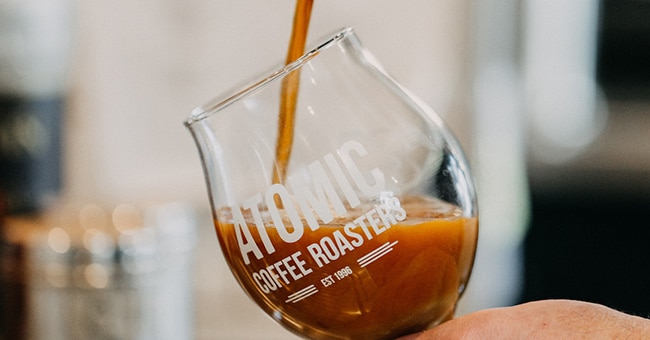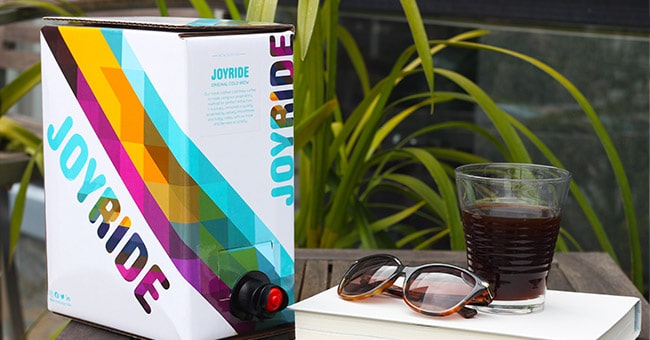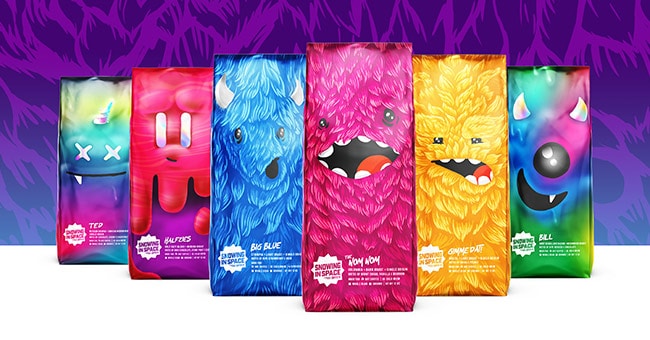Joyride Coffee Distributors, which operates a cold brew coffee keg business servicing the office and food service channels in New York, California and Massachusetts, had been well ahead of its initial 2020 projections at the beginning of March, according to president and co-founder David Belanich. But in just a few weeks, operations came to a near standstill.
As the COVID-19 pandemic has forced a shutdown of all non-essential businesses, leading to both mass layoffs and a widespread shift to work-from-home for white collar workers, the growing space for cold brew coffee on draft has been effectively halted. The impact has forced coffee brands and distributors that had relied heavily on the office channel to make rapid changes, including pivots to ecommerce, fast-tracking consumer-facing innovations and making difficult decisions about staffing. Though many of these coffee providers are eager for offices to reopen, the decisions being made now could potentially leave their business models forever changed, with more diversified channel mixes and permanent new revenue streams.
Brands Pivot Towards the Consumer
At Joyride, which produces its own coffee in addition to distributing brands such as Starbucks, Peet’s and Blue Bottle, the loss of office accounts led the company to move up the launch of a consumer-facing bag-in-box product by a year.
According to Belanich, the company had long planned to release the product as part of a broader expansion, but after COVID hit production began immediately, with the first run launched online direct-to-consumer last month. The company is also exploring a retail launch for the line as well as an online expansion through Amazon.
The multiserve bag-in-box format also provides an avenue for retaining the consumers who had become familiar with Joyride through their office keg services. Though the closure of physical offices has forced many consumers to provide their own at-home refreshments, some business customers are continuing their relationships with coffee providers to carry workplace perks over into the work-from-home environment.
Many tech companies, Belanich said, have already announced that they’re unlikely to reopen offices before the fall or next year at the earliest, regardless of whether the government allows them to resume operations before then. Despite this, he said, many companies are still looking for ways to “keep their employees engaged.” As a result, Joyride is offering online discount codes to the employees of some of its office customers for its new bag-in-box while some accounts have purchased units directly to give to their staff.
“We’re trying to right scale our business, or the business that’s coming back, so that we can operate profitably,” Belanich said. “We’re really taking a closer look at solutions for remote workforces because I think that’s part of the shift that we’re going to see, even post-pandemic entirely. Believe it or not, there will be a time that we’re not talking about coronavirus every day, but I think remote is going to be a bigger part of the mix.”
Multiple coffee companies reached for this story said they have either sought out or been approached by their customers for similar deals. At New York-based Wandering Bear — of which office and food service accounted for 50% of its business pre-pandemic — co-founder and CEO Matt Bachmann said although he anticipates work-from-home to become more commonplace post-COVID, many employees have grown accustomed to workplace perks and employers, who might rely on these benefits to boost employee morale or prevent competitors from poaching talent, will still seek to provide them at home.
“The tech ecosystem created the culture of work perks, and the company benefits arms race that created cold brew on tap [as a business model] is a mainstay,” Bachmann said. “So yes, offices are closed and that impacts our business. But there are also trends that we’re watching to really understand what the future of this stuff looks like.”
Bachmann said that Wandering Bear, which also sells single serve and multiserve bag-in-box products in retail and online, has seen ecommerce sales grow between three to six times since March.
According to Matthew Barry, beverages consultant at market research firm Euromonitor International, the shift to at-home coffee consumption could also be a longer term benefit to premium coffee providers. Since consumers are not spending money on daily trips to the cafe, they may be more willing to pay more for higher quality coffee at home — a trend in line with past economic recessions.
“Americans have embraced cold coffee with a real passion in recent years and as the weather gets warmer, there will be a real demand that coffee shops are not going to be able to fully meet as long as social distancing remains in place,” Barry said. “That suggests a potential opening for RTD brands that can give Americans a quality cold coffee at home this summer.”
Paul Dierkes, co-founder and CEO of Charlottesville, Virginia-based Snowing In Space, said his brand is now aiming to focus innovation around at-home consumption. Like Wandering Bear, kegs made up around half of Snowing In Space’s business and, despite the overall surge in grocery retail sales during the initial months of the pandemic, the brand’s canned line stayed consistent but did not see a noticeable uptick. Now it is launching a whole bean business, which will include an ecommerce subscription model. The packaging, he said, will include family-friendly “creature” packages that once emptied can be turned into hand puppets for busy parents to entertain their children while working from home.
“Coffee has become a part of the ritual at home,” Dierkes said. “Previously it was a ritual in the office. Now it’s a ritual where you’re surrounded by your kids.”
Channel Shutdown Leads to Hard Choices
For some coffee producers, the shutdown of the office and food service channel has led them to layoff or furlough staff. Dierkes said when shutdowns began in March, Snowing In Space initially had to lay off the majority of its then-15-person staff. However, after receiving a loan from the federal government through the Paycheck Protection Program (PPP), the company was able to rehire several people and now operates with a team of nine.
Joyride, Belanich said, had nearly 100 employees across all its markets but furloughed much of its staff and is now operating with a “skeleton crew.” The company still has some accounts, including hospitals, that are considered essential businesses and has maintained them in order to “keep a heartbeat” for when offices reopen and normal business can resume.
Wandering Bear, however, has aimed to keep their current teams and opted instead to relocate employees to other parts of the business. This has meant bringing formerly outsourced activities in-house and retraining sales team members on areas including design, marketing, finance and customer service.
At Massachusetts-based Atomic Coffee Roasters, employees who worked in the keg business have been given roles in the brand’s whole bean division. Founder and co-owner John Mahoney said the company was less hard hit than others by the loss of office channels, despite kegs making up 30% of its revenue, due to the company structure already being diversified.
Atomic, he said, operates a co-packing facility which has seen a sharp uptick in business since the crisis began, more than offsetting the loss from keg sales, as roaster-retailers look to create canned cold brew offerings of their own coffees to sell to consumers while their cafes are closed. Mahoney said he believes many of these new customers will continue to produce cans even after they can reopen their shops.
“A lot of times roaster-retailers are too busy to undertake a new project,” Mahoney said. “They’re stuck behind the roaster or too deep in production to pull the trigger. So with the slow down, it opened up their capacity to get something new done.”
While the return of office sales will be more than welcome, coffee providers don’t expect things to return to normal immediately. For Wandering Bear, Bachmann noted that some innovations for offices — including nitro cold brew — were put on hold during the lockdown, but the company is now exploring opportunities to launch certain new products online and in retail “where it makes sense.”
Dierkes said Snowing In Space is using the time to make its operations more efficient for its employees. Prior to COVID, the brand’s head of distribution could be on the road for as many as 60 hours a week doing deliveries. Moving ahead, the company is aiming to optimize its distribution network and allow staff more flexibility.
At Joyride, Belanich said the company is ready at any time to execute and begin to service its customers again, but he expects the reality of reopening will be slow.
“We see the path to restarting, which is exciting for us,” Belanich said. “Last week in particular, we started to see some customers inquire about restarting and asking, for example, what kind of programs we’re putting in place to ensure the safety of our customers, like proper PPE for our staff, that sort of thing. So those are the conversations we’re now having.”


